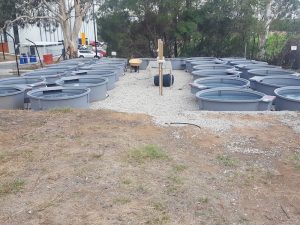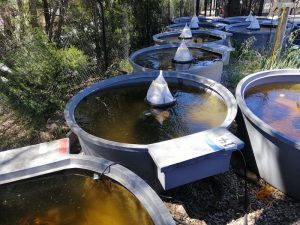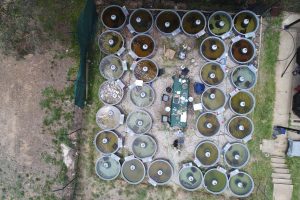Institute for Applied Ecology, Faculty of Science and Technology
University of Canberra, Bruce, ACT, 2617, Australia
Jon Bray
Please login or request access to view contact information.
Ben Kefford
Please login or request access to view contact information.
The system consists of 32 independent circular freshwater mesocosms each of 1000 L capacity. They can be used either with flowing water i.e. a stream mesocosm (using a pump in each mesocosm to create the flow) or as a pond mesocosm (without the pump). The mesocosms are re-circulating (i.e. non-flow through). A float value ensures that any water lost through evaporation is replaced.
Controlled parameters are experiment dependent. Experiments to date have manipulated: salinity, the proportions of major ions (i.e. the ions that make up salinity), nutrients (N and P), sedimentation, pesticide concentration and sources of biota.
Examination of multiple stressors in freshwaters.
Effects of multiple physico-chemical stressors such as: salinity (major ions), pesticides nutrients and sediment. Role of biotic interactions in altering effects of chemicals.
Consists of 32 fully independent mesocosms each of 1000 L capacity with mains electricity supply for an electric submersible pump (1400 L/hr). Each mesocosm is plumbed into dechlorinated Canberra tap water.
Commercially available nearby.
https://www.canberra.edu.au/research/institutes/iae
Bray, J. P., J. Reich, S. J. Nichols, G. Kon Kam King, R. Mac Nally, R. Thompson, A. O’Reilly-Nugent & B. J. Kefford, 2019. Biological interactions mediate context and species-specific sensitivities to salinity. Philosophical Transactions of the Royal Society of London B 374(1764): 20180020. doi: http://dx.doi.org/10.1098/rstb.2018.0020.
 |
 |
 |
